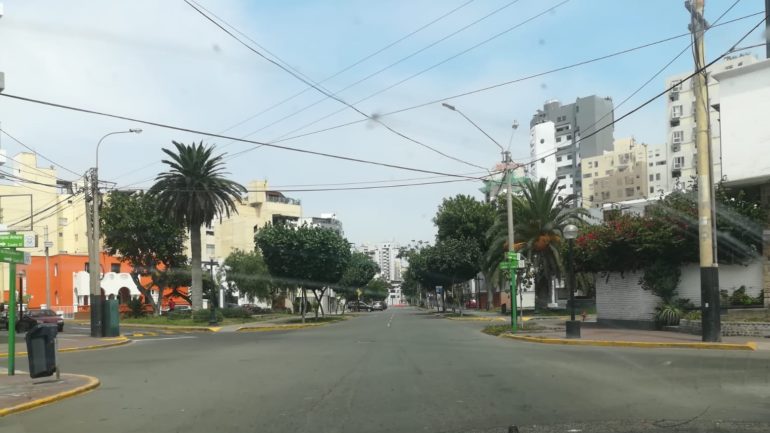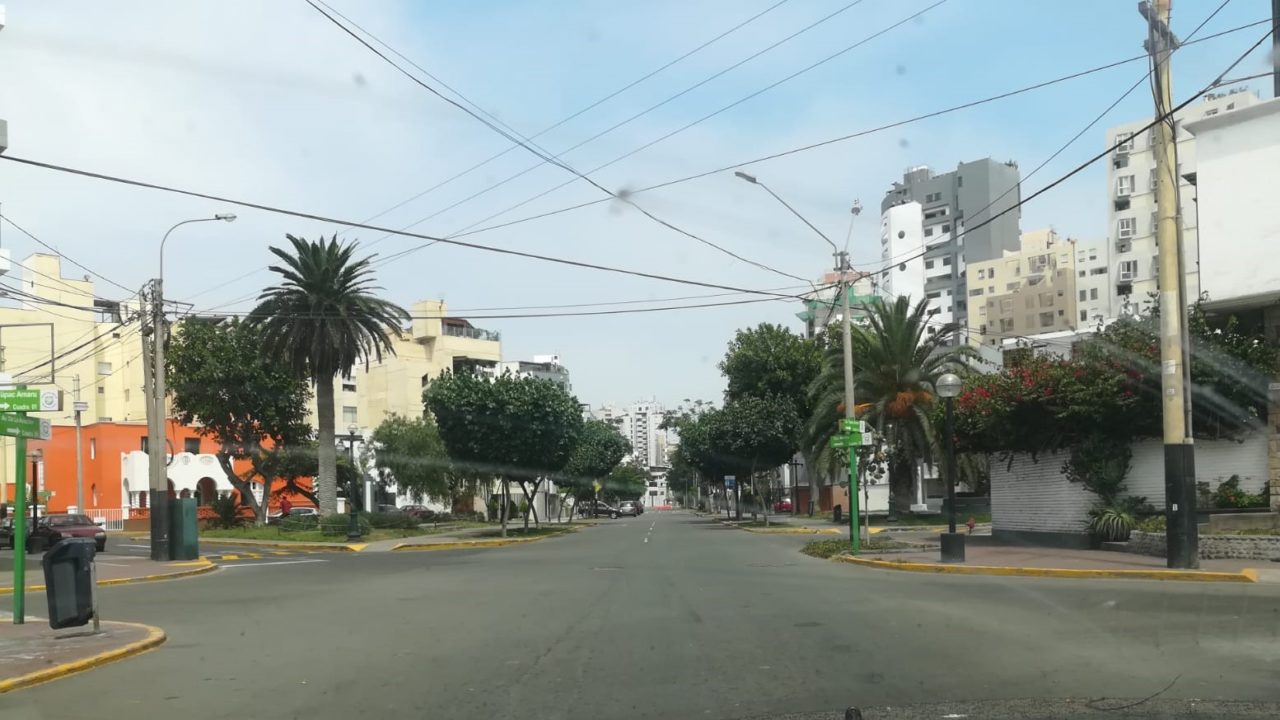
Parmisse Menendez
Peru is in an absolute state of health emergency as of March 16, 2020, when President Martín Vizcarra announced different measures to battle COVID-19.
The government announced classes in schools, universities and colleges were cancelled from March 12 and advised people to stay at home.
Peruvians are allowed to buy food, medicine, banking or walking their pets only between 5 a.m. and 8 p.m., but that was changed to until 6 p.m. since March 31. If people are caught in the streets during the restricted times, they will be arrested, the government recommended.
Those limits were recently changed where men only are allowed out three days and women alone on three other days. No one is allowed out on Sundays, The lockdown is expected to continue until April 12.
The main airport of Peru, Aeropuerto Jorge Chavez, located in the capital of Lima, was closed for commercial trips on March 17.
However, people who had tickets to fly still went there with some hope to travel.
People who work in food chains, markets, health unions, police and the military, and other basic jobs are allowed to drive their own cars to get to their workplaces and can walk freely between 5 a.m. and 8 p.m.
According to Instituto Nacional de Estadística e Informática (INEI), around seven million people (22 per cent of the population) are poor in Peru, and because of that, the President announced a bonus of 380 soles (around $158) per family. Also, 1,874 municipalities are receiving money to buy supplies that they can be distributed among poor people.
“I do not consider the bonus is enough for the days of quarantine. Besides that, if the government decides to increase the quarantine, they should give us more to survive,” Yesenia Romero said.
Romero, an informal worker, takes care of children, but due to the COVID-19 situation, she is not working and cannot fulfil her basic needs.
People say the mandatory quarantine the government imposed places restrictions on tasks that were once routine and taken for granted.
“My dog is used to go outside to pee or relax for at least 20 minutes, now she only has between two and four minutes to be outside,” said 20-year-old Sthefany Cuenca, an English student at ICPNA. “Because of that, I have decided to adapt my bathroom so she can go there.”
The President announced a fine of 6,300 soles (around $2,610) if people are caught in their cars without a purpose and their driver’s licences will be suspended until the end of the lockdown, the President said.
“I am at home all day, and when I see through my window, I watch people specifically foreigners at the same time, 6 p.m. doing nothing important in the streets,” Cuenca said.
According to different videos posted on Twitter and Instagram, every day at 8 p.m. people go to their balconies and start clapping to honour health professionals, police, the military and others working despite the quarantine.

